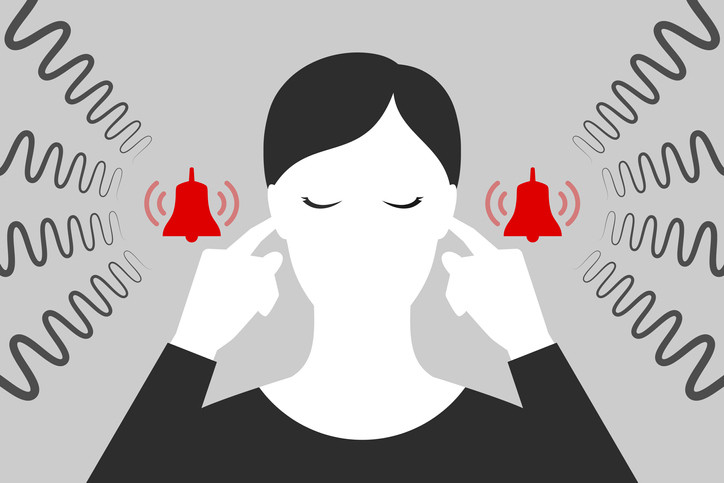What are the symptoms of tinnitus?
Tinnitus is characterized by the perception of sounds that are not caused by external sources. Symptoms of tinnitus can vary but commonly include:
- Ringing: The most common symptom is hearing a ringing sound in the ears.
- Buzzing: Some people experience a buzzing or hissing sound.
- Humming: A humming sound is also possible, often described as similar to a low-frequency tone.
- Roaring: A sensation of hearing a roaring sound, akin to a waterfall or the ocean, can occur.
- Clicking: In some cases, individuals hear clicking or popping noises.
- Variability: The intensity and pitch of the sounds can vary, and they may be constant or intermittent.
- Hearing Loss: Tinnitus is often associated with hearing loss, and the sounds can sometimes make it difficult to hear external noises clearly.
- Impact on Sleep and Concentration: The persistent sounds can affect the ability to fall asleep or concentrate, potentially leading to stress or anxiety.
Tinnitus can be caused by a range of factors, including exposure to loud noises, ear infections, earwax buildup, age-related hearing loss, and certain medications.
What are the causes of tinnitus?
Tinnitus can arise from various underlying causes, including:
- Hearing Loss: Age-related hearing loss (presbycusis) or damage to the inner ear structures can lead to tinnitus. Exposure to loud noises can also cause hearing loss and subsequent tinnitus.
- Ear Infections: Infections in the ear canal or middle ear can lead to tinnitus.
- Earwax Buildup: A buildup of earwax can block the ear canal and cause tinnitus.
- Otosclerosis: This is a condition where abnormal bone growth in the middle ear affects hearing and can cause tinnitus.
- Meniere’s Disease: This inner ear disorder, characterized by vertigo, hearing loss, and tinnitus, results from fluid buildup in the inner ear.
- Head or Neck Injuries: Trauma to the head or neck can damage the auditory system and lead to tinnitus.
- Temporomandibular Joint (TMJ) Disorders: Problems with the jaw joint can cause tinnitus, often accompanied by jaw pain.
- Medications: Certain medications, known as ototoxic drugs, can cause tinnitus as a side effect. Examples include high doses of aspirin, some antibiotics, and chemotherapy drugs.
- High Blood Pressure: Elevated blood pressure or vascular conditions can contribute to the perception of tinnitus.
- Stress and Anxiety: Emotional stress or anxiety can exacerbate tinnitus or make it more noticeable.
- Other Health Conditions: Conditions such as thyroid disorders, diabetes, and cardiovascular diseases can also be associated with tinnitus.
Identifying and addressing the underlying cause of tinnitus is crucial for effective management and treatment.
What is the treatment for tinnitus?
The treatment for tinnitus focuses on managing symptoms and addressing any underlying conditions. Approaches can include:
- Addressing Underlying Conditions: If tinnitus is caused by an underlying condition like ear infection, earwax buildup, or hearing loss, treating that condition can alleviate tinnitus symptoms.
- Hearing Aids: For those with hearing loss, hearing aids can improve hearing and often reduce the perception of tinnitus by amplifying external sounds.
- Sound Therapy: Using white noise machines, fans, or specialized tinnitus maskers can help distract from the tinnitus sounds and make them less noticeable.
- Cognitive Behavioral Therapy (CBT): CBT can help individuals manage the emotional and psychological impact of tinnitus, reducing stress and improving quality of life.
- Tinnitus Retraining Therapy (TRT): This therapy combines sound therapy with counseling to help retrain the brain to focus less on tinnitus.
- Medications: While there is no specific medication for tinnitus, certain drugs may help manage symptoms or associated conditions, such as anxiety or depression.
- Lifestyle Changes: Reducing exposure to loud noises, managing stress, and avoiding caffeine and quitting smoking can help minimize tinnitus symptoms.
- Behavioral Strategies: Techniques such as mindfulness and relaxation exercises can help manage the stress and anxiety associated with tinnitus.
- Alternative Therapies: Some people find relief through acupuncture, herbal supplements, or other alternative treatments, though their effectiveness may vary and should be discussed with a healthcare provider.
Consulting with a healthcare professional, such as an audiologist or otolaryngologist, is important for determining the most appropriate treatment plan based on individual needs and underlying causes.

Leave a Reply
You must be logged in to post a comment.